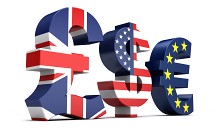The launch by British Airways’ owner of a low-cost long-haul airline could be a key staging post in the development of the growing trend for cheaper and longer flights.
'Level' has been unveiled by International Airlines Group as a low-cost, long-haul carrier operating out of Barcelona from June with flights to Los Angeles, San Francisco, Buenos Aires and Punta Cana in the Dominican Republic.
The move will put the company in direct competition with companies such as Norwegian, which has tried to carve a niche for itself in the nascent cheap long-haul flights market...Level will be run by IAG’s Spanish carrier Iberia’s flight and cabin crew and fares with start from €99 one-way or $149 compared to the lowest price for flights on Norwegian from Barcelona to San Francisco of €162, according to prices published on its website.



















